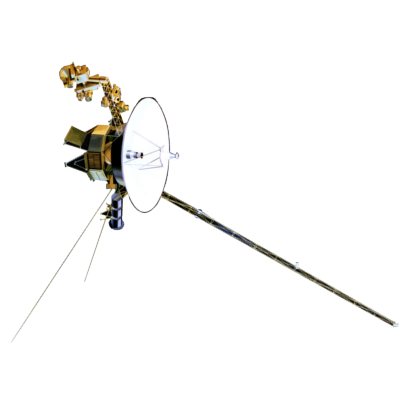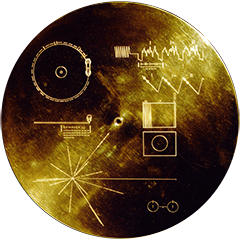Overview: Fundamental Technologies, LLC, provides data products for the Low Energy Charged Particle (LECP) instruments on the Voyager spacecrafts. The LECP instruments measure the intensity, energy spectra, composition, angular distributions, and spatial and temporal characteristics of ions and electrons that are encountered by the spacecrafts. Such particles are fundamental components of the interplanetary environment (through solar, galactic, and local acceleration processes) and of the space environments that surround the planets.
Mission Background: NASA's Voyager Program is a continuing scientific program that involves investigations done by both the Voyager 1 and Voyager 2 probes. Originally planned to study only Saturn and Jupiter, Voyagers 1 and 2 are now tasked with investigating interstellar space. Voyager 2 became the only scientific probe to ever reach Uranus and Neptune, and after reaching the escape velocity of our solar system, Voyager 1 became the first man-made object to reach interstellar space. Voyager 1 is also the current furthest man-made object in history.
Scientific Payload: Voyagers 1 and 2 were created to be identical in function, both with ten instruments to conduct their investigations:
| ACRONYM | TYPE OF INVESTIGATION |
|---|---|
| ISS | Imagery of Jupiter, Saturn, and other objects |
| RSS | Physical properties of planets, satellites, and Saturn's rings |
| IRIS | Global and local energy balance, and atmospheric compositions |
| UVS | Atmospheric properties and radiation |
| MAG | Magnetic fields of Jupiter/Saturn, and the interplanetary magnetic field |
| PLS | Properties of plasma ions, and electrons from 5eV to 1keV |
| LECP | Differential in fluxes, angular distribution of ions/electrons |
| CRS | Properties and behavior of cosmic rays in the interplanetary medium |
| PRA | Radio emissions from Jupiter/Saturn |
| PPS | Surface texture, density, and composition of outer planets |
| PWS | Electron-density profiles at Jupiter/Saturn |
The LECP instrument consists of two distinct solid-state detector configurations:
|
Low-Energy
Magnetosphere Particle Analyzer (LEMPA) |
10-15KeV energy thresholds and separation of ions from electrons |
| Low-Energy Particle Telescope (LEPT) | Energy distributions and charge of medium/low energy nuclei |
Along with their scientific instruments, Voyagers 1 and 2 each carry a "Golden Record" that contains sounds and imagery intended to show the diversity of life on Earth to any potential extraterrestrials or future humans that may find them.
Additional information at Fundamental Technologies, LLC:
Updated 8/9/19, Cameron Crane
VOYAGER 1 ELAPSED TIME
*Since official launch
September 5, 1977, 12:56:00:00 UTC
VOYAGER 2 ELAPSED TIME
*Since official launch
August 20, 1977, 14:29:00:00 UTC
QUICK FACTS
Mission Duration: 40+ years have elapsed for both Voyager 1 and Voyager 2 (both are ongoing).
Destination: Their original destinations were Saturn and Jupiter. Their current destination is interstellar space.



